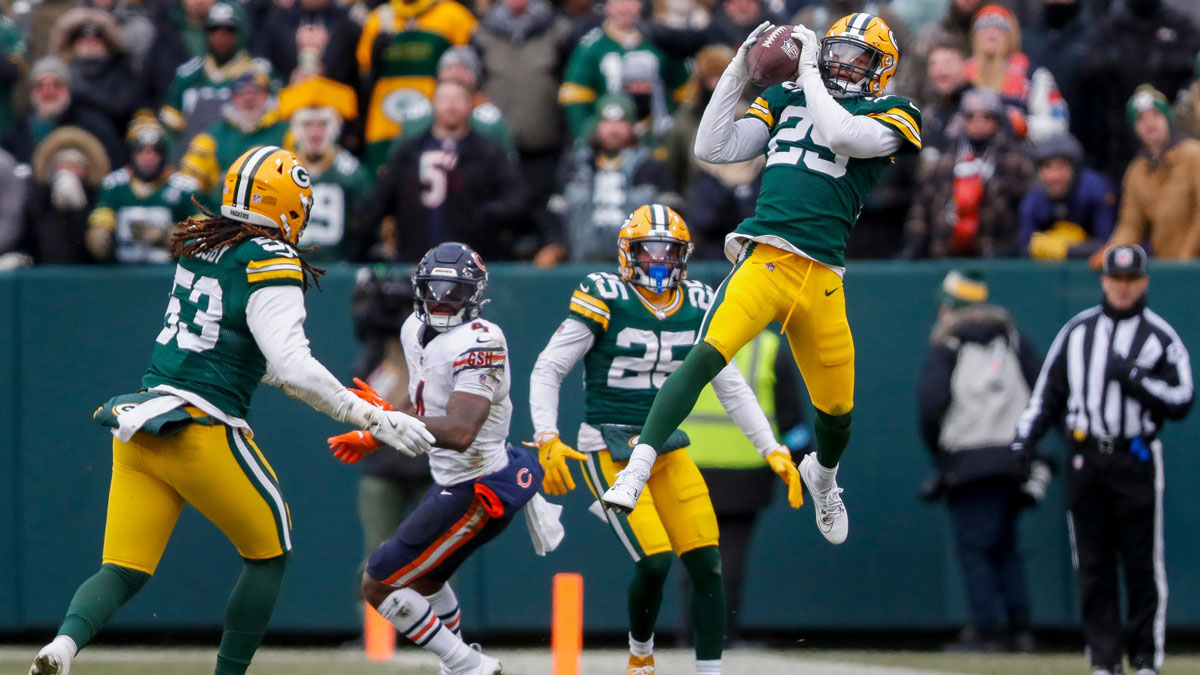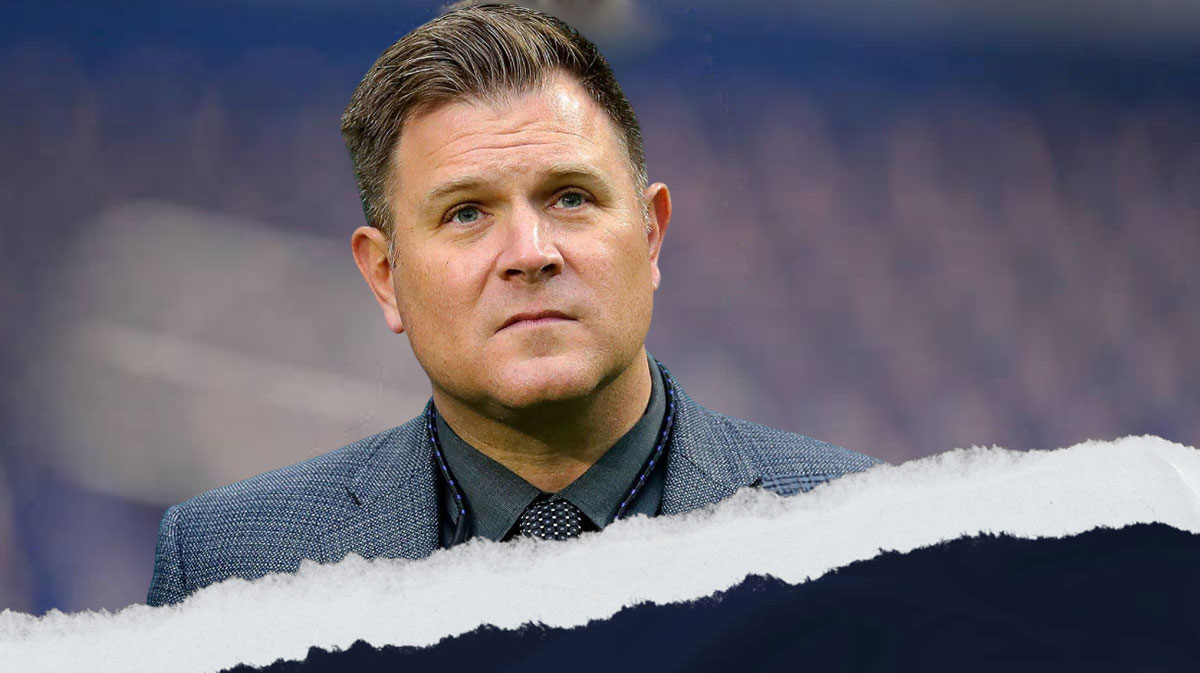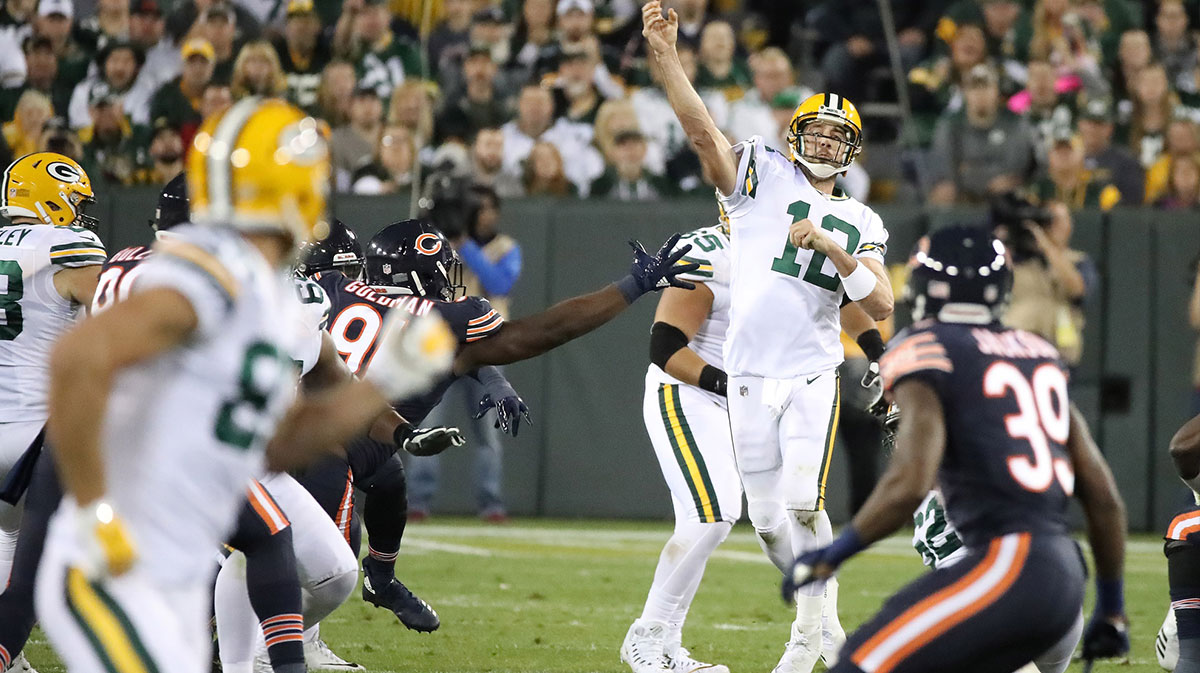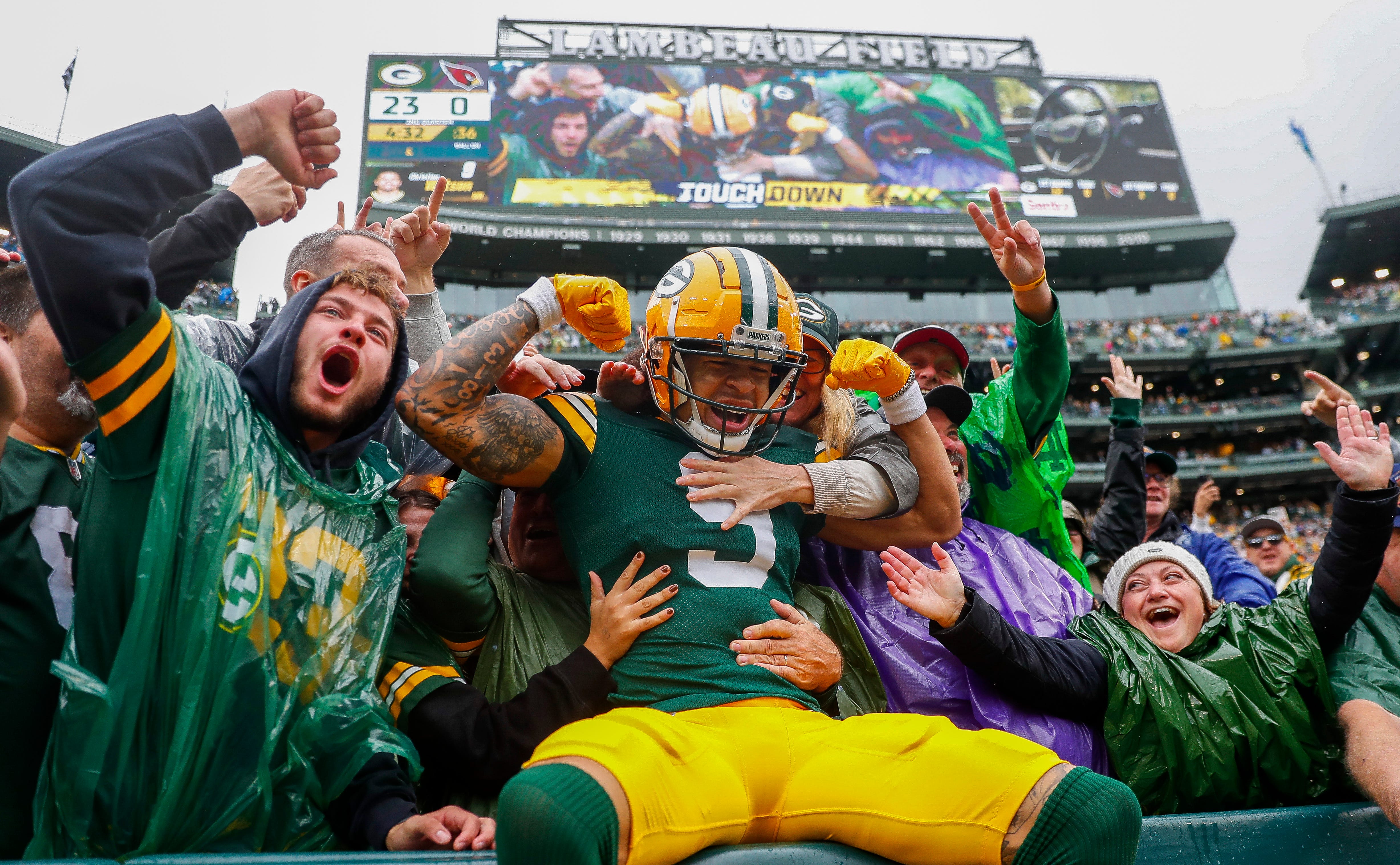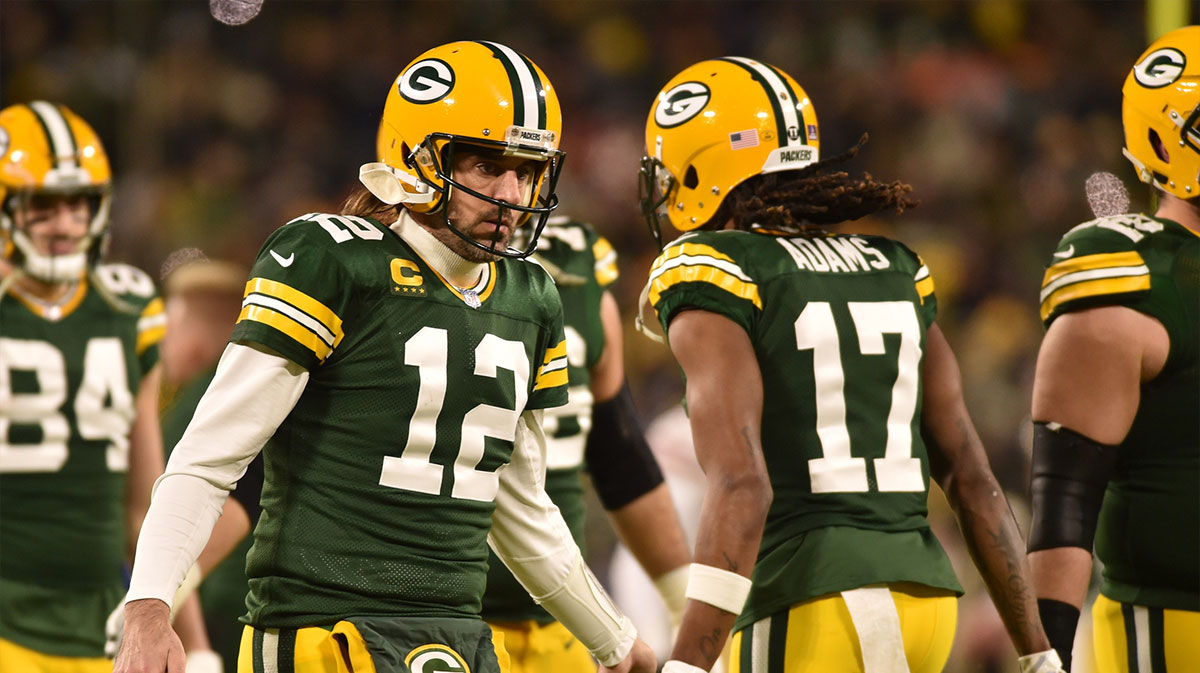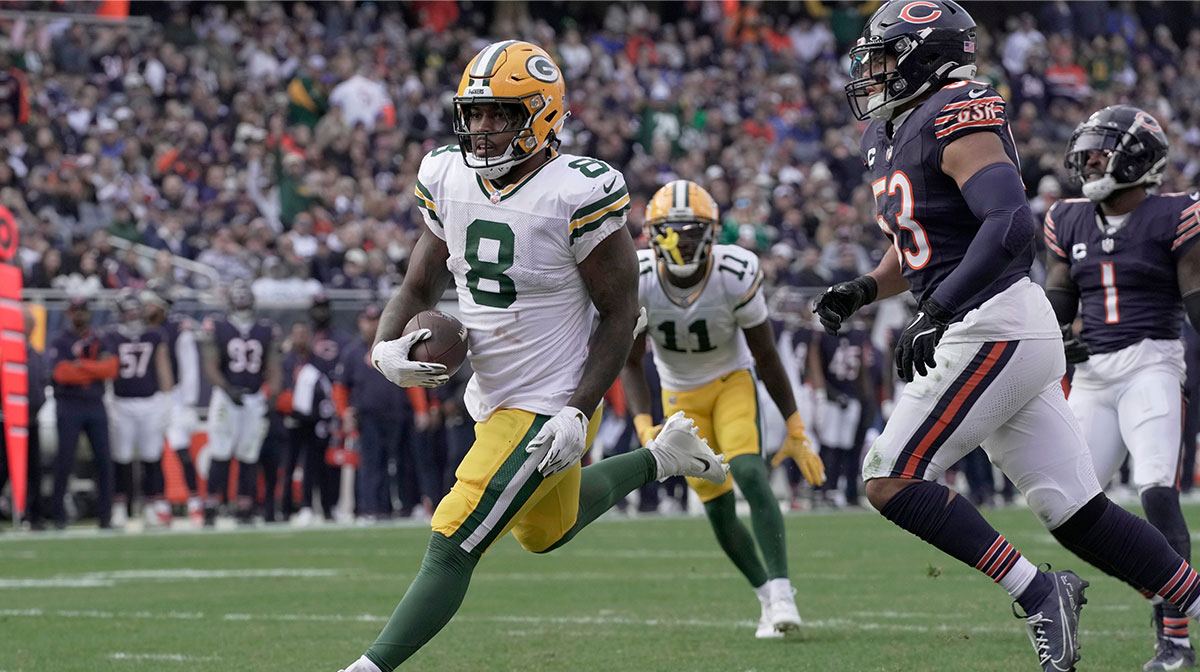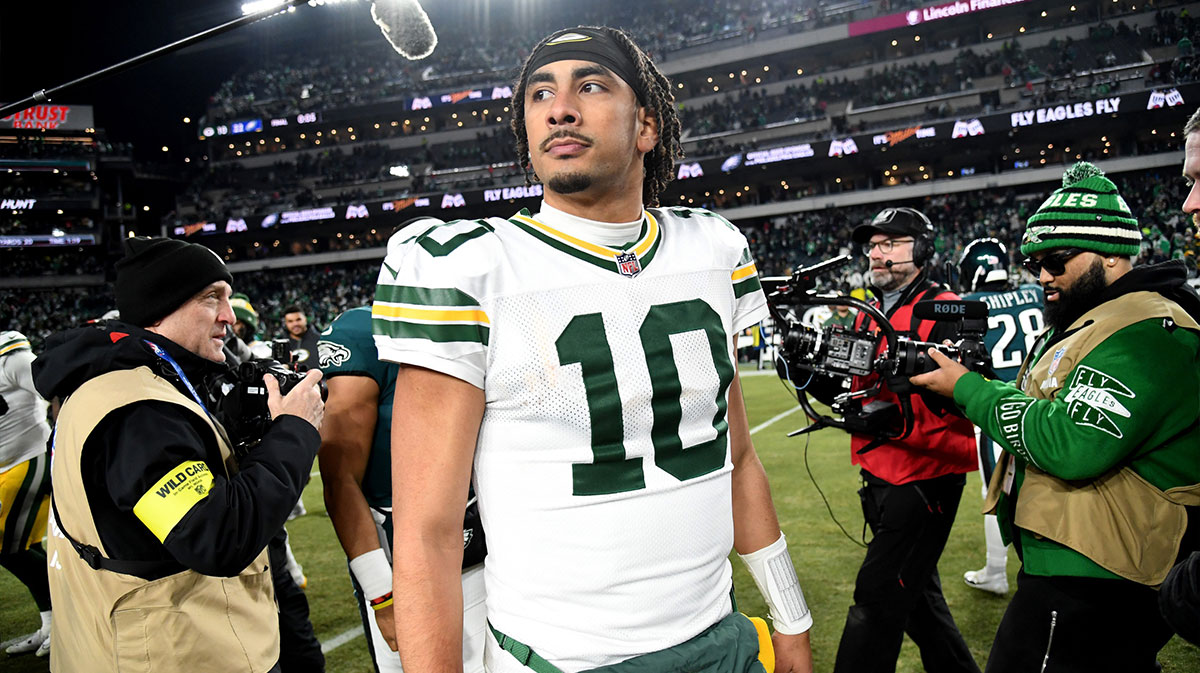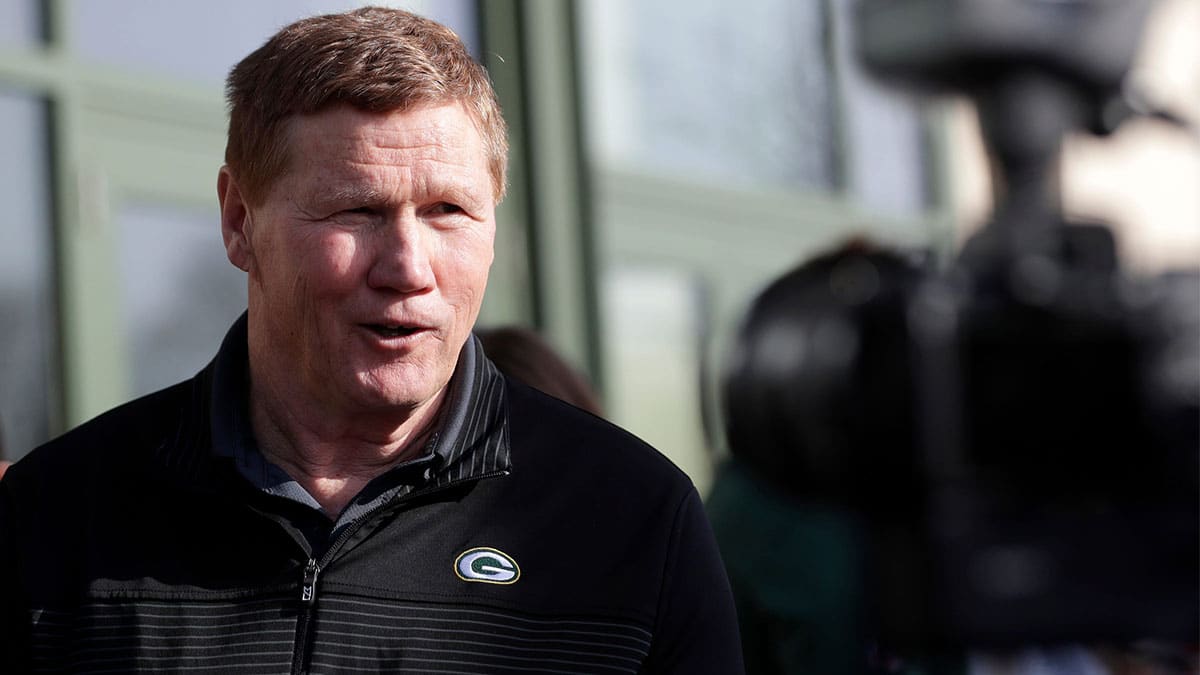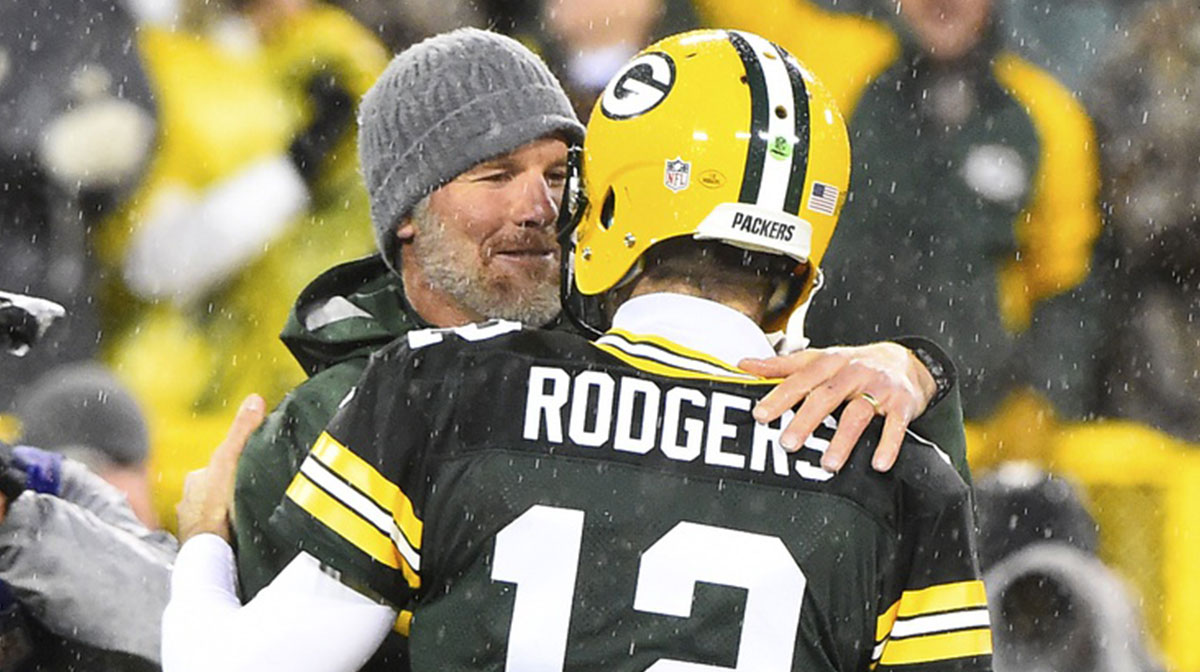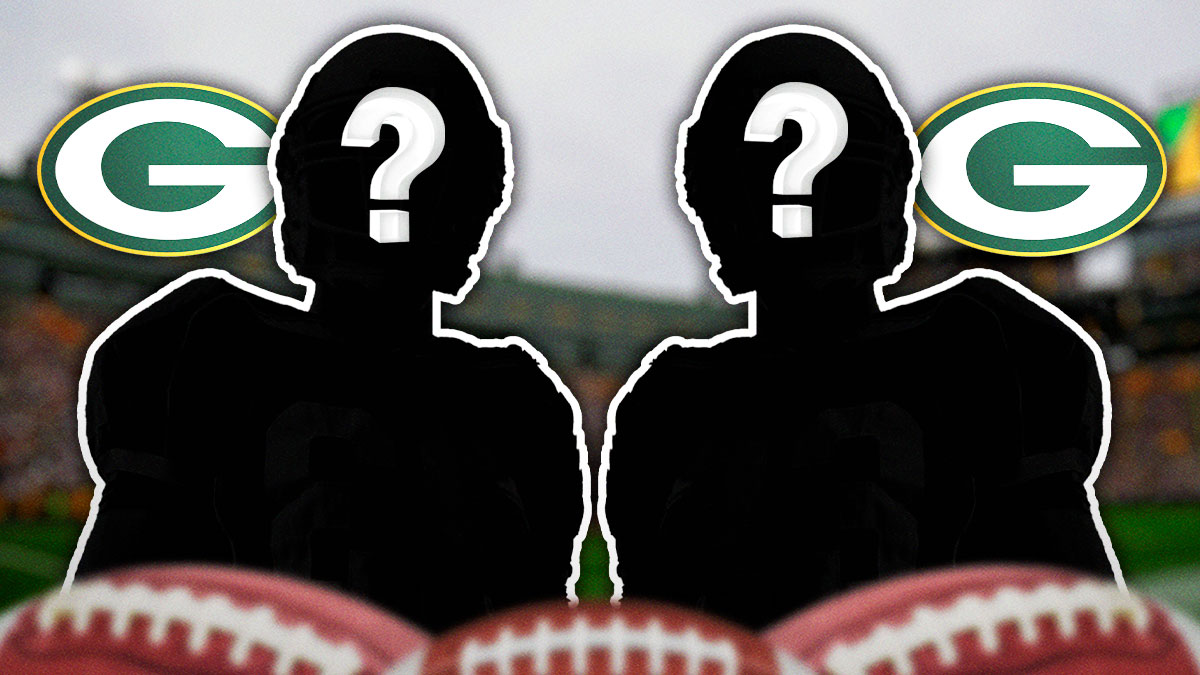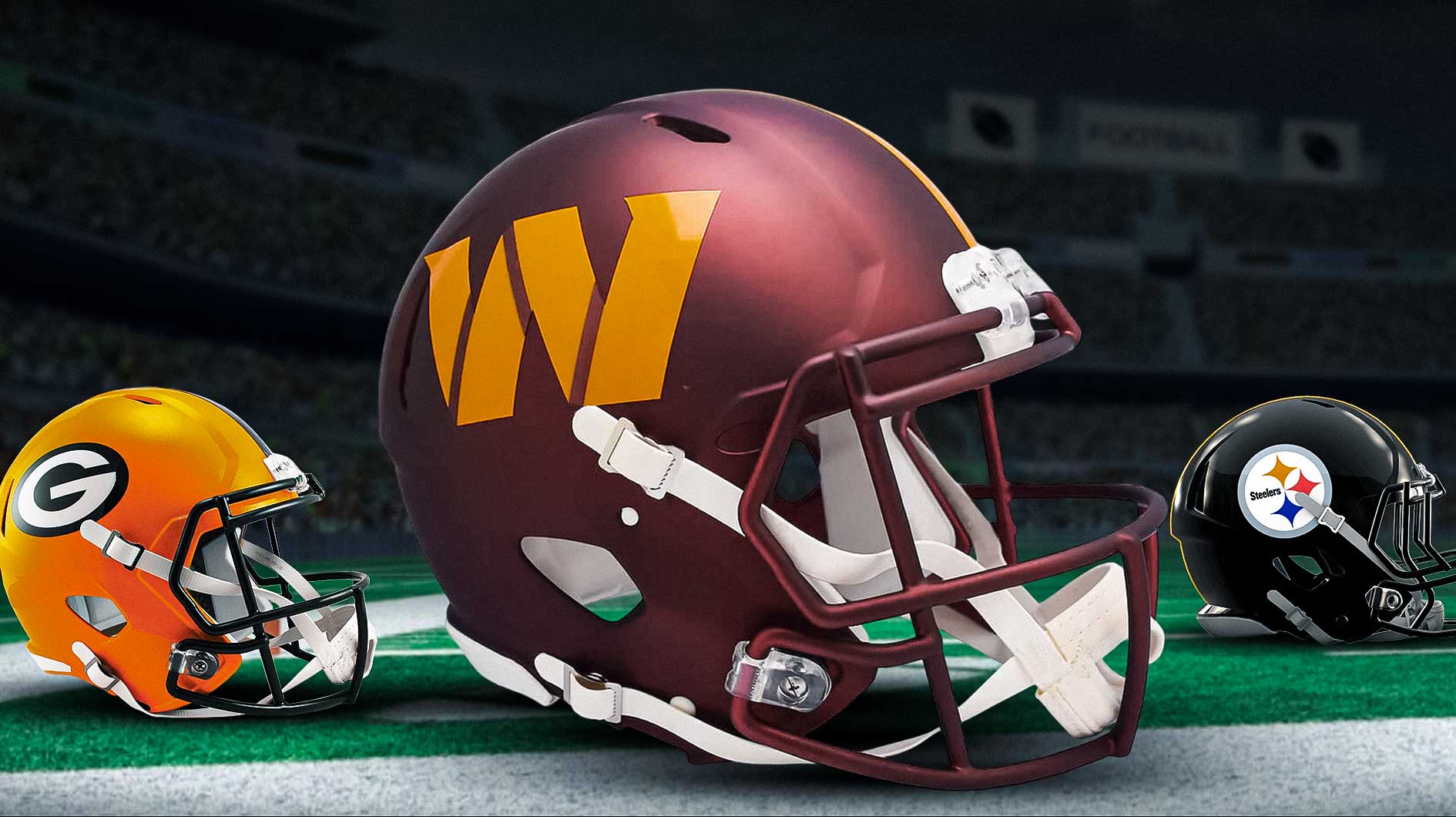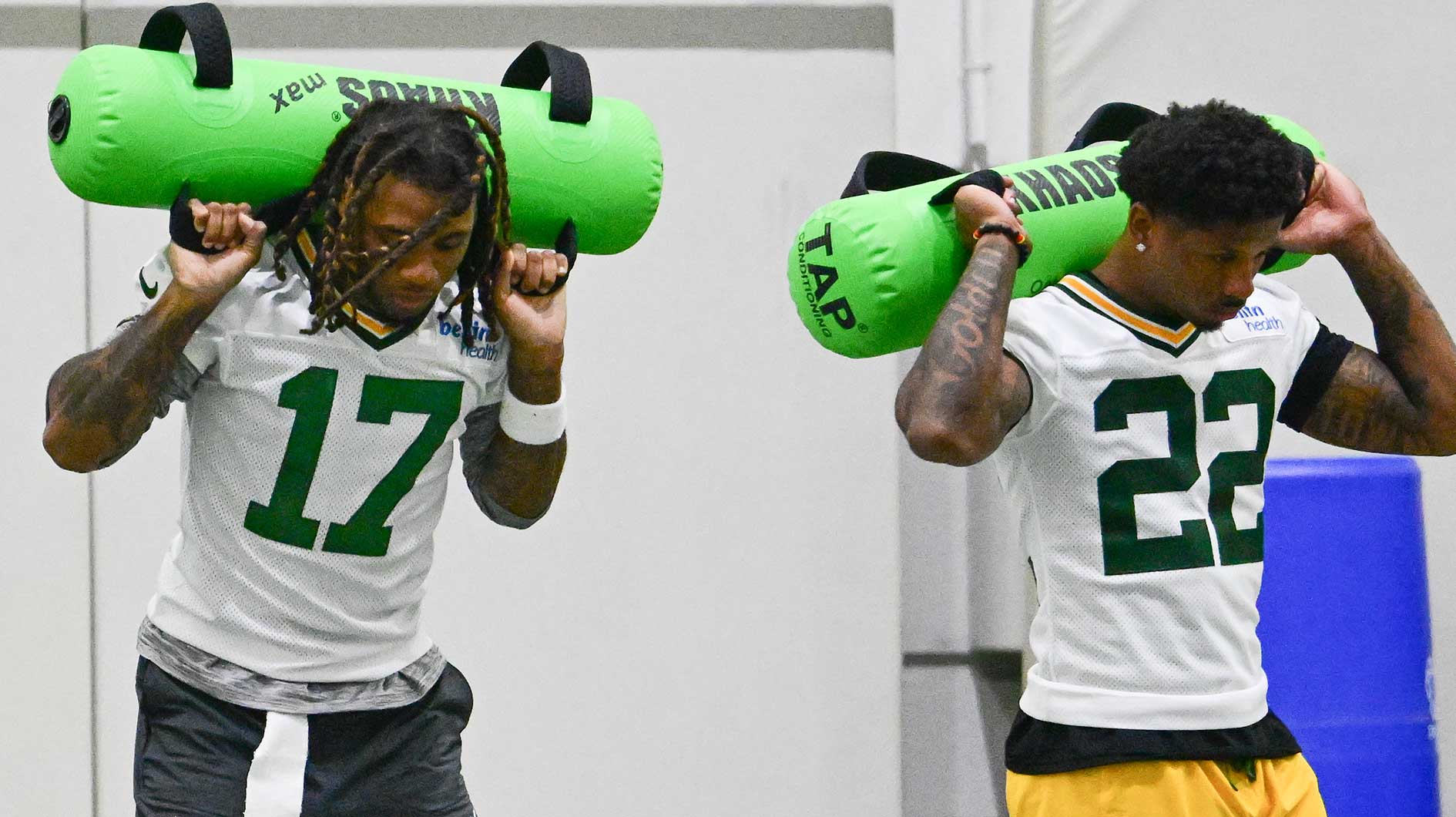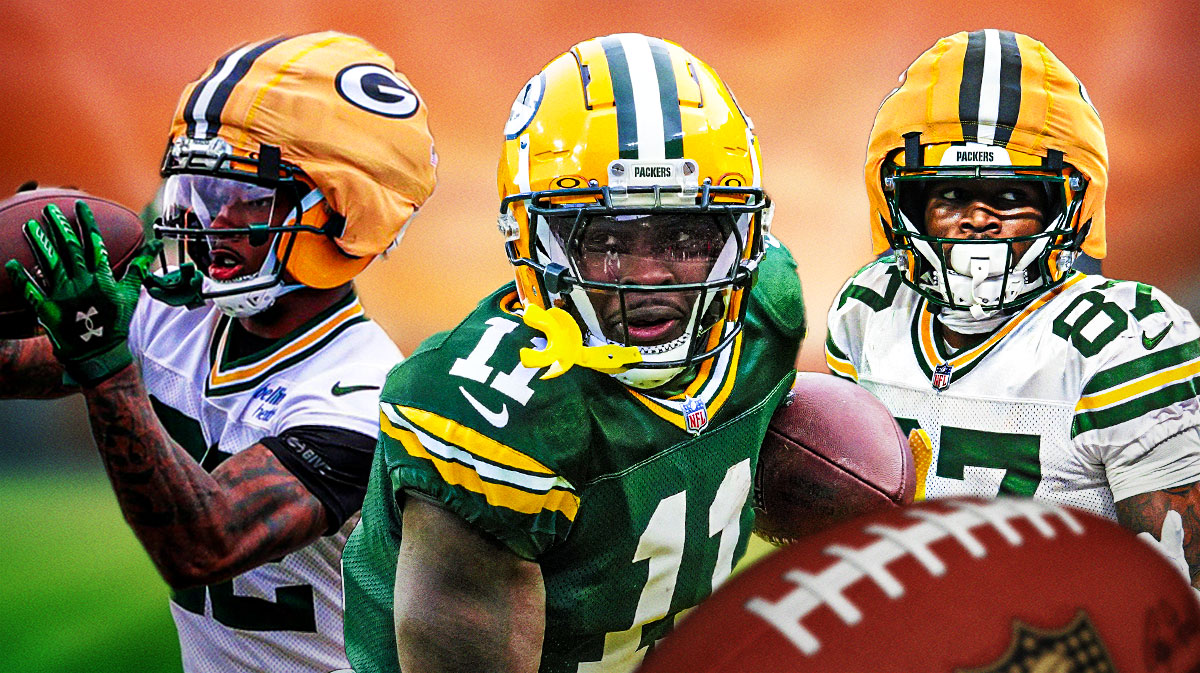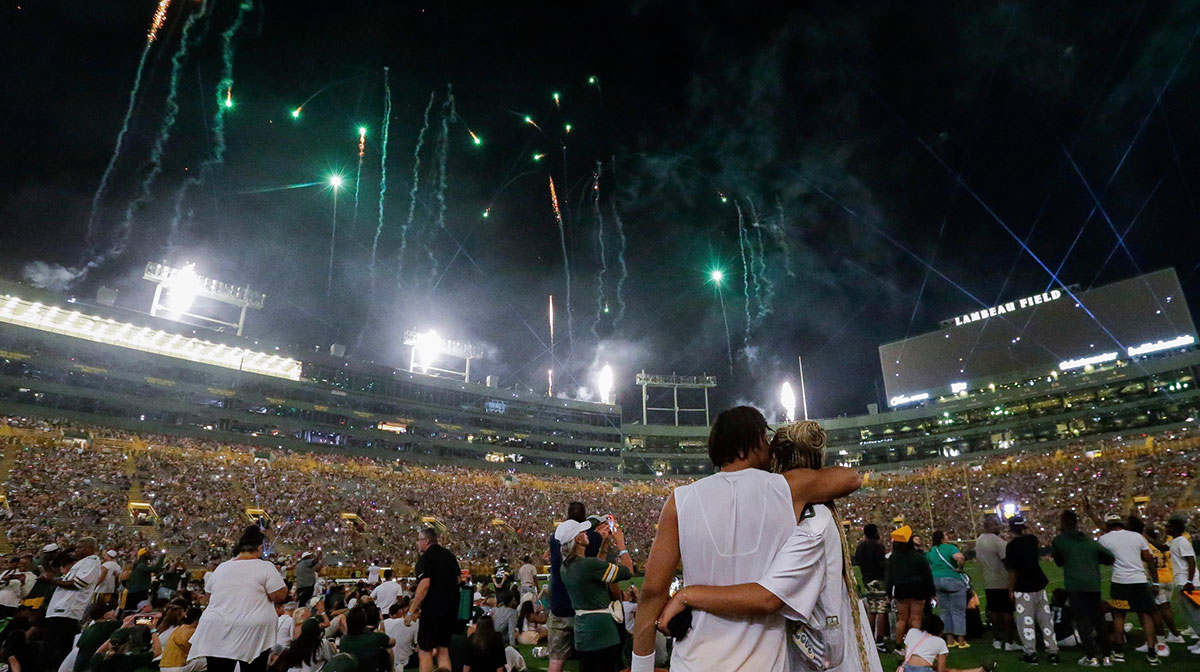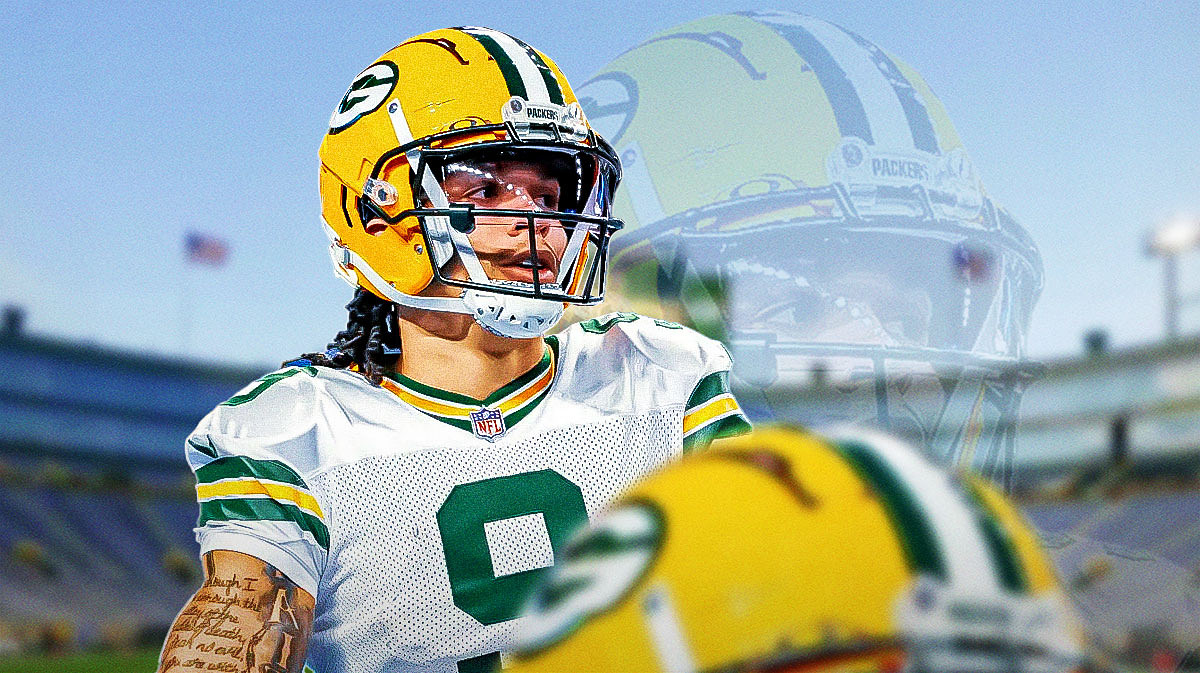- CLUTCH Summary: The longer Green Bay Packers quarterback Aaron Rodgers plays in the NFL, the easier it is to make GOAT QB arguments for him.
- People often have recency bias when it comes to spots, often leading to folks forgetting players who trotted about the gridiron in other areas.
- Nevertheless, the case for Aaron Rodgers as the best quarterback in NFL history isn't a hard one to make, but he's not in the top 10.
Depending on who you talk to, Aaron Rodgers is either one of the most overrated or most underrated players in NFL history. He has become a polarizing figure in terms of his historical standing. Well, let’s settle the debate once and for all. Today we’ll determine where Rodgers ranks among his historic peers.
First, let’s start with Rodgers’ qualifications. Since becoming the full-time starter, Rodgers has made seven Pro Bowls and been a First Team All-Pro twice. In 2011 and 2014, he was the league’s MVP. In 2010, Rodgers and the Green Bay Packers ran the table, beating the Pittsburgh Steelers in Super Bowl XLV. Rodgers was the game’s MVP.
As a starter, Rodgers has a regular season record of 100-57-1. He has completed 3560 of 5492 pass attempts and thrown for 42,944 passing yards, 338 touchdowns, and 80 interceptions. Rodgers has led the NFL in passing touchdowns once and passer rating twice. His 103.1 career passer rating is the highest in NFL history.
Rodgers has a complete résumé. He’s a future first-ballot Hall of Famer, that’s undeniable. However, his place among the greatest quarterbacks is undetermined. While Rodgers has been great, he’s not even the best quarterback in Green Bay history, and several quarterbacks from the 2000s and 2010s outrank him.
Rodgers has been in the league alongside Tom Brady, Drew Brees, Favre, Peyton Manning, and Kurt Warner. Before even getting into quarterbacks from previous eras, we need to determine where Rodgers stands among the quarterbacks he’s faced during his career.
Right away, we can place Brady and Manning above Rodgers. Brady is the only quarterback in NFL history with six Super Bowl victories. He has three league MVPs, and his 207 regular season wins are the most in NFL history. Even if he is only fourth all-time in passing yards (70,514) and third in passing touchdowns (517), Brady is the greatest football player of all-time.
Manning also has a dominant case against Rodgers. The seven-time First Team All-Pro has five MVPs. No other player in NFL history even has four. Manning also has two Super Bowls victories to go along with 186 regular season wins, 71,940 passing yards, and 539 passing touchdowns. Rodgers doesn’t have the win totals or statistical dominance to compete with Manning, and it’s uncertain if he ever will.
Things get interesting where comparing Rodgers to Brees, Favre, and Warner. Brees has never won an MVP and he has the same number of Super Bowl wins as Rodgers. However, the Saints quarterback has two Offensive Player of the Year awards, 155 regular season wins, and five of the eleven 5,000-yard seasons on record. He’s the all-time leader in pass completions and yards. Brees also has the second-most passing touchdowns and the third-highest passer rating in history. Even with his MVPs, Rodgers doesn’t stand up to Brees at the moment.
Favre is also ahead of Rodgers in the all-time rankings. When he retired, Favre held all major passing records. Admittedly, his game was much different from Rodgers’. While Rodgers is poised and efficient, Favre was a gunslinger. However, that doesn’t diminish that Favre is the winningest Packers quarterback in history.
During his 12-year cinderella career, Warner went to three Super Bowls and won one along with two league MVPs. However, Warner suffered a massive drop off from 2002-2007 and his career numbers don’t even scratch Rodgers’. Rodgers has the better résumé, even though Warner went to more Super Bowls.
In 2010, NFL Network released The Top 100: NFL's Greatest Players. The list is outdated now, but it provides a strong baseline for where historic quarterbacks rank against each other. Nine quarterbacks ranked inside the top 30 players of all-time. Brady (#21), Favre (#20), and Manning (#8) were among them. In the span from 2010 until now, Rodgers has not done enough to surpass any of other six quarterbacks I’m about to discuss.
Moving forward, we’ll be discussing quarterbacks from older eras. Remember that career totals don’t always translate as a comparable statistic across time. You have to judge players based on their accomplishments and standing in their own eras before comparing them. You can’t just write-off decades of quarterbacks because of differing circumstances.
Joe Montana (#4) and Johnny Unitas (#6) ranked above Manning on NFL Network’s list. While it can be argued where those two quarterbacks sit in the all-time rankings now, they’re both ahead of Rodgers.
Montana was the greatest quarterback in NFL history until Brady dethroned him in the last decade. Montana won four Super Bowls during his career and was the league’s MVP twice. The three-time First Team All-Pro also led the NFL in completion percentage five times.
Unitas held the quarterback crown before it was passed on to Montana. During his career, Unitas went to ten Pro Bowls and was a First Team All-Pro five times. He won three MVPs, three NFL Championships, and one Super Bowl.
The other quarterbacks who ranked in NFL Newtork’s top 30 players were Sammy Baugh (#14), Otto Graham (#16), John Elway (#23), and Dan Marino (#25). Baugh, who played from 1937-1952, was one of the first great passers in league history. He led the league in passing yards per game six times and won two NFL Championships.
Likewise, Graham was one of the early stars of the quarterback position. From 1946-1955, he won four AAFC Championships, three NFL Championships, and was a First Team All-Pro seven times. He led the league in passing yards and quarterback rating five times.
Elway and Marino fit more of the modern style of quarterbacks. During his career, Elway went to five Super Bowls and won two. He also won a league MVP and finished his career with 148 regular season wins, 51,475 passing yards, and 300 passing touchdowns.
Marino never won a Super Bowl, but the 1984 league MVP retired with most major regular season passing records. His 4,967 completions, 61,361 passing yards, and 420 passing touchdowns have since been surpassed.
We’ve discussed 10 quarterbacks who I believe deserve to be ranked higher than Rodgers on an all-time list. There are others that we haven’t even gotten to though, like Terry Bradshaw, Len Dawson, Sid Luckman, Bart Starr, Roger Staubach, Fran Tarkenton, and Steve Young.
Taking into account all of those quarterbacks and some others who weren’t listed, Rodgers comes in just outside of the top 15 quarterbacks of all-time. Many people will say this ranking is too low for Rodgers, but I wholly disagree.
You could make the argument that Rodgers deserves to be higher in the quarterback hierarchy because of pure “talent.” However, “talent” only goes so far when comparing quarterbacks across eras. Accomplishments are more important, and Rodgers isn’t accomplished enough to be counted among the top ten quarterbacks in league history.
Ultimately, career statistics, dominance in different eras, and championships separate other quarterbacks from Rodgers. Rodgers is statistically inferior to his modern counterparts and has failed to live up to the winning ways of quarterbacks from past generations. That can be fixed with time though, as Rodgers’ final spot on the list isn’t set in stone.


